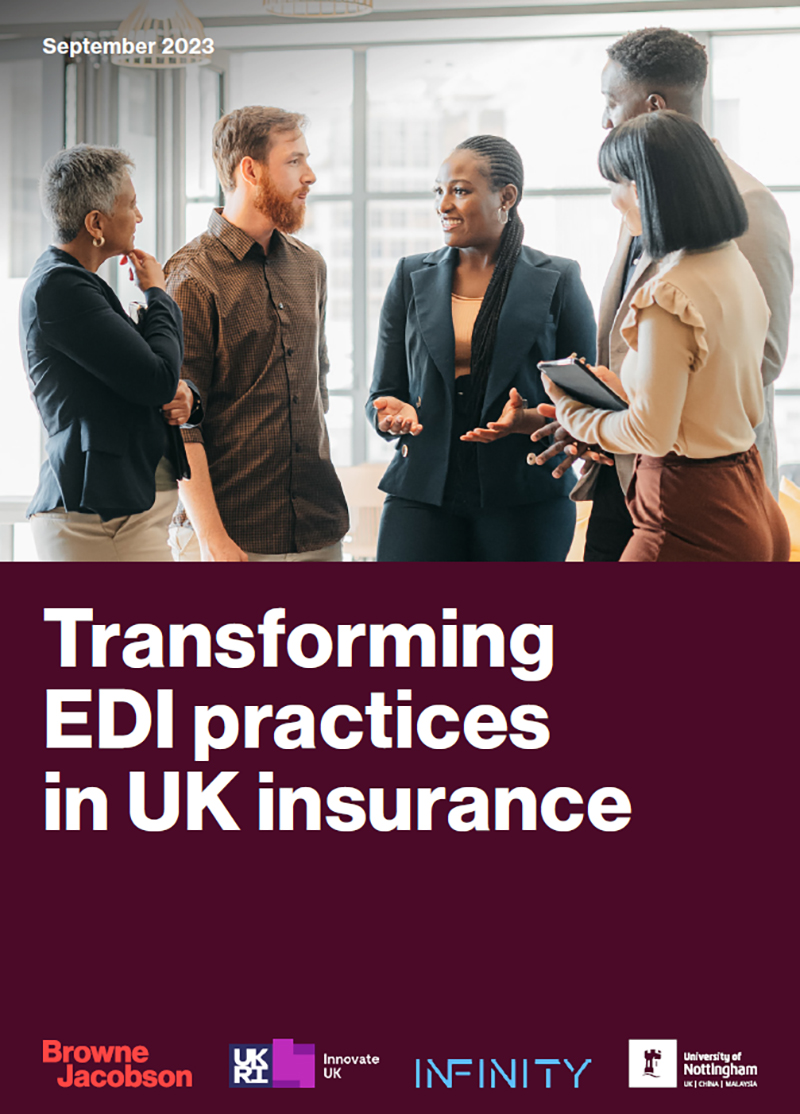Flexible working is key to creating a more diverse and inclusive workforce, according to a new report. The research into equality, diversity and inclusion in the UK insurance industry also found that excessive alcohol consumption at team building and client events fuels inequality, discrimination and harassment.
The ‘Transforming EDI practices in UK Insurance’ study was carried out by experts at the University of Nottingham, in partnership with Browne Jacobson LLP. It is the first independent study of its kind into people’s lived experiences of EDI (Equality, Diversity and Inclusion) in UK insurance firms, and it will now be used as an industry-wide benchmark for assessing and improving workplace culture.
The research was led by Louise Mullany, Professor of Sociolinguistics and Dr Victoria Howard, Diversity and Inclusion Specialist, at the University of Nottingham. It was conducted as part of the university’s Inclusive Financial Services Hub, INFINITY, and an Innovate UK Knowledge Transfer Partnership.
Research findings
- 75% of participants consider flexible working to be advantageous to EDI.
- Some respondents said that working from home felt ‘safer’ when they felt excluded or minoritised in the workplace.
- Participants identified the risk that people working from home were potentially less ‘visible’ and could miss out on career progression opportunities.
- Excessive alcohol consumption during work socials and client events caused exclusion and harassment. It is a contributing factor in multiple incidents of sexism, racism and unwanted sexualised behaviour.
- 37% of participants have seen/heard discriminatory language and behaviour. This includes language that is misogynistic, sexualised, racist, homophobic, ableist and ageist. Some participants also reported being disadvantaged at work for having a ‘non-British accent’.
- More than half of women and people from ethnic minority backgrounds report that their career progression is held back due to their gender or race.
- Women reported that they had to work harder to prove themselves capable, and that being heard and taken seriously in the workplace is ‘an uphill battle’.
- Several participants said that they had greater work experience than men who were paid more and promoted ahead of them.
- Some participants reported leaving or planning to leave workplaces where they felt undervalued or excluded so that they could actively seek out more inclusive workplace cultures.
Read the full report
